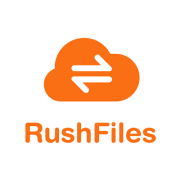File System Software is used to manage, store, and organize files on storage devices. It provides efficient and secure ways to handle data, ensuring optimal performance and reliability for various applications.
Ensuring effective data management, File System Software offers capabilities such as data storage management, access control, data integrity, and disaster recovery. This software is crucial for organizations that need to efficiently handle large volumes of data, offering consistent performance and ensuring data availability.
What are the critical features of File System Software?In industries like finance, File System Software ensures secure transactions and compliance with regulations. In healthcare, it supports patient data management and maintaining privacy. The software suits educational institutions by efficiently handling large volumes of data and supporting collaborative environments.
File System Software helps organizations ensure efficient data handling and security, enhancing overall performance and operational continuity.


![WekaFS [EOL] Logo](https://images.peerspot.com/image/upload/c_scale,dpr_3.0,f_auto,q_100,w_60/953s8txpsm4shhs3dmkb4f7eut2q.jpg)




















File System Software enhances data access efficiency by organizing files within a structured hierarchy that allows quick retrieval and storage. It employs caching techniques, optimizes read/write speeds, and reduces the need for redundant data operations. Modern solutions often provide intelligent data management features that automatically prioritize and distribute data across different storage mediums, ensuring optimal performance and reduced latency for frequent access scenarios.
What are the security features in File System Software?File System Software often includes security features like access control lists (ACLs), encryption, and audit logs. These features help you protect sensitive data by ensuring only authorized users can access specific files or directories. Encryption safeguards data integrity by making unauthorized reading or modification impossible without the correct cryptographic keys. Continuous monitoring and audit logs offer insight into file usage patterns, helping you identify potential breaches and maintain compliance with regulatory standards.
How does File System Software support data scalability?File System Software supports data scalability by enabling seamless integration of additional storage resources without disrupting existing operations. It often includes features that allow automatic expansion of storage volumes and efficient distribution of data across multiple devices. Technologies like distributed file systems provide a framework for scaling storage horizontally, ensuring that as data grows, system performance and availability remain unaffected. This capability is critical for enterprises dealing with large volumes of data and needing to adapt quickly to changing storage demands.
What role does File System Software play in disaster recovery?File System Software plays a critical role in disaster recovery by providing consistent and reliable data replication and backup options. It ensures that you can restore data to a previous state following any data loss event by creating snapshots and maintaining data redundancy. Many solutions offer integrated tools for automating data backup processes and facilitate quick recovery through simplified data restoration techniques. Additionally, cloud-based file systems extend these capabilities with offsite backup options, further enhancing your organization's resilience against data loss.
How does File System Software integrate with cloud services?File System Software integrates with cloud services by providing seamless support for hybrid storage environments where on-premises infrastructure coexists with cloud storage solutions. Integration is facilitated through APIs and connectors that allow cloud storage to appear as a natural extension of your existing file system. This enables you to take advantage of cloud-specific benefits like elasticity and scalability while managing data using familiar tools and interfaces. Furthermore, many modern file systems include native cloud compatibility, offering features like automatic data tiering that optimize costs and performance based on usage patterns.